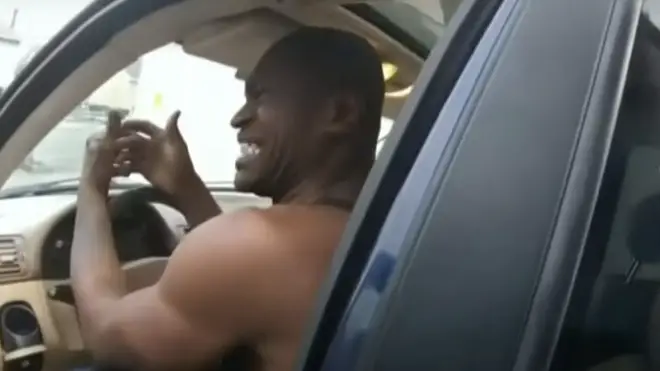
Henry Riley 4am - 7am
1 April 2021, 06:14 | Updated: 1 April 2021, 10:57

Court shown Derek Chauvin body cam footage of George Floyd's arrest
A US court has been shown new police bodycam footage of George Floyd pleading with officers not to shoot him during his arrest and telling them: "I'm not a bad guy".
At the trial of former Minneapolis police officer Derek Chauvin, footage from cameras worn by the four officers who arrested Mr Floyd in May was played.
Video recorded by his colleague Thomas Lane showed Mr Floyd begging for police not to open fire one of the officers pointed a pistol at him.
Mr Floyd says: "Please don't shoot me, please, man."Please, man, I didn't know."An officer is also heard telling him to "stop resisting", to which Mr Floyd replies: "I'm not."

Chauvin, 45, is charged with murder and manslaughter, accused of killing the 46-year-old by kneeling on Mr Floyd's neck for nine minutes, 29 seconds, as he lay face-down in handcuffs.
The most serious charge against Chauvin carries up to 40 years in prison.
Mr Floyd was arrested and detained after allegedly attempting to pass a fake 20 dollar bill at a shop last May.
In the footage played in court Mr Floyd is seen being confronted by police. He says: "Please don't shoot me... I just lost my mom."
Mr Floyd is handcuffed and continues to plead with officers, telling them he is not resisting them and "will do anything you tell me to".
Mr Floyd starts crying and resisting while saying he is claustrophobic and has anxiety as officers try to put him into a vehicle.
Mr Chauvin and his partner Mr Thao arrive as the arrest goes on.
Officers drag him out of the car and restrain him on the ground, and Mr Floyd can be heard calling for his mother and telling his family members he loves them.
After the ambulance took Mr Floyd away, the Minneapolis officer who had pinned his knee on the black man's neck defended himself to a bystander by saying Mr Floyd was "a sizable guy" and "probably on something".
Charles McMillian, a 61-year-old bystander who recognised Chauvin from the neighbourhood, told the officer he did not respect what Chauvin had done, the court heard.
"That's one person's opinion," Chauvin could be heard on video responding. "We gotta control this guy 'cause he's a sizeable guy... and it looks like he's probably on something."
Mr Floyd was six feet four inches and weighed 223 pounds, according to the autopsy. Chauvin's lawyer said the officer is five feet nine inches and weighs 140 pounds.
Mr Floyd's death, along with the harrowing bystander video of him gasping for breath as onlookers yelled at Chauvin to get off him, triggered violent protests around the world and a reckoning over racism and police brutality across the US.
Events spun out of control that day soon after Mr Floyd allegedly handed at cashier at Cup Foods, 19-year-old Christopher Martin, a counterfeit bill for a pack of cigarettes.
Mr Martin testified on Wednesday that he watched Mr Floyd's arrest outside with "disbelief - and guilt."
"If I would've just not tooken the bill, this could've been avoided," Mr Martin said.
Mr Martin said he immediately believed the 20 dollar bill was fake. But he said he accepted it, despite believing the amount would be taken out of his paycheque by his employer, because he did not think Mr Floyd knew it was counterfeit and "I thought I'd be doing him a favour".
Mr Martin said he initially planned to just put the bill on his own "tab" but then second-guessed himself and told a manager, who sent him outside to ask Mr Floyd to return to the store.
But Mr Floyd and a passenger in his SUV twice refused to go back into the store to resolve the issue, and the manager had a co-worker call police, Mr Martin testified.
Mr Martin said that when Mr Floyd was inside the store buying cigarettes, he spoke so slowly "it would appear that he was high". But he described Mr Floyd as friendly and talkative.
The defence has argued that Chauvin did what he was trained to do and that Mr Floyd's death was not caused by the officer's knee, as prosecutors contend, but by Mr Floyd's illegal drug use, heart disease, high blood pressure and the adrenaline flowing through his body.